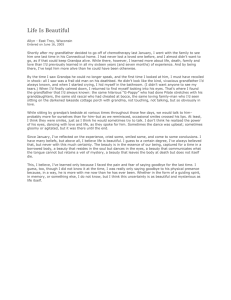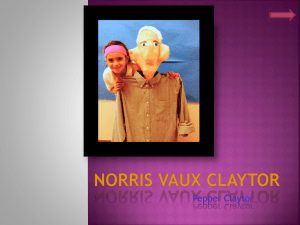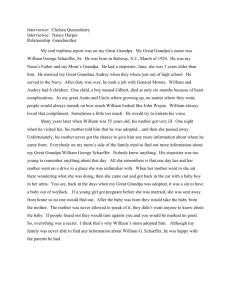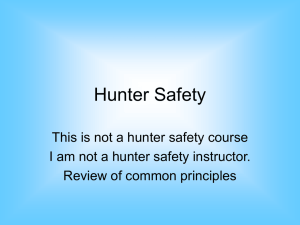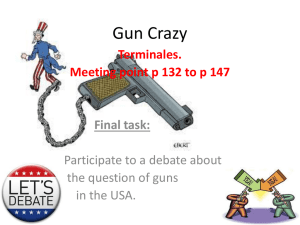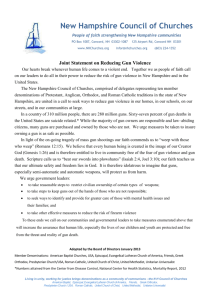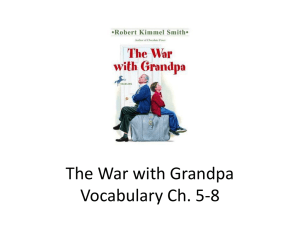memoirsexamples
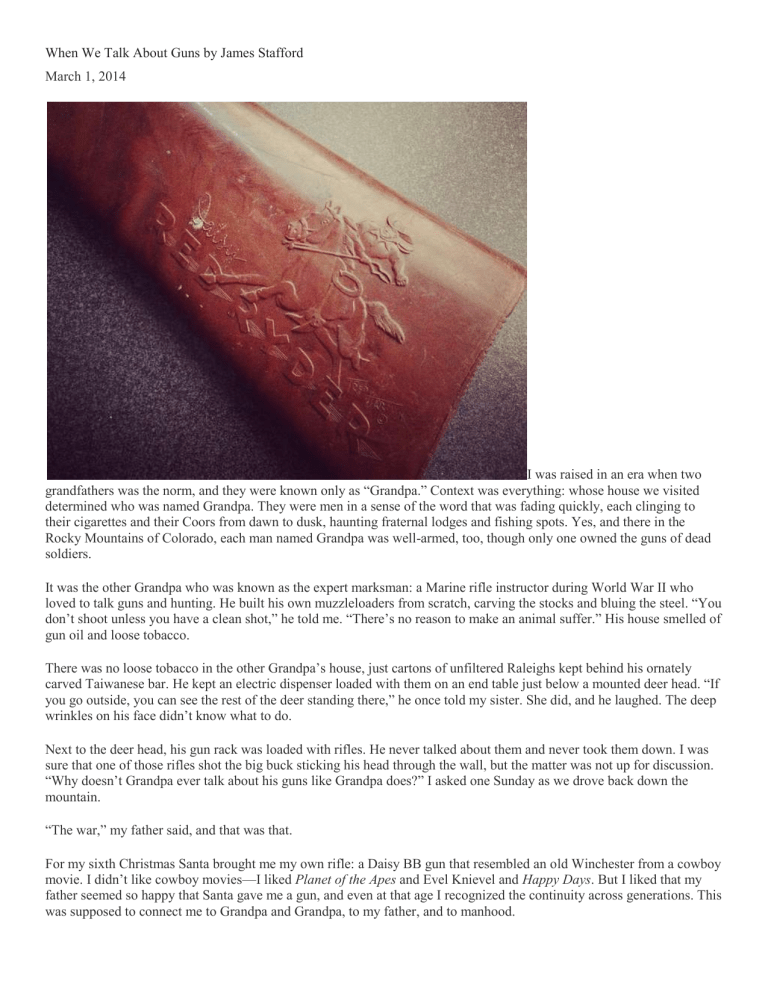
When We Talk About Guns by James Stafford
March 1, 2014
I was raised in an era when two grandfathers was the norm, and they were known only as “Grandpa.” Context was everything: whose house we visited determined who was named Grandpa. They were men in a sense of the word that was fading quickly, each clinging to their cigarettes and their Coors from dawn to dusk, haunting fraternal lodges and fishing spots. Yes, and there in the
Rocky Mountains of Colorado, each man named Grandpa was well-armed, too, though only one owned the guns of dead soldiers.
It was the other Grandpa who was known as the expert marksman: a Marine rifle instructor during World War II who loved to talk guns and hunting. He built his own muzzleloaders from scratch, carving the stocks and bluing the steel. “You don’t shoot unless you have a clean shot,” he told me. “There’s no reason to make an animal suffer.” His house smelled of gun oil and loose tobacco.
There was no loose tobacco in the other Grandpa’s house, just cartons of unfiltered Raleighs kept behind his ornately carved Taiwanese bar. He kept an electric dispenser loaded with them on an end table just below a mounted deer head. “If you go outside, you can see the rest of the deer standing there,” he once told my sister. She did, and he laughed. The deep wrinkles on his face didn’t know what to do.
Next to the deer head, his gun rack was loaded with rifles. He never talked about them and never took them down. I was sure that one of those rifles shot the big buck sticking his head through the wall, but the matter was not up for discussion.
“Why doesn’t Grandpa ever talk about his guns like Grandpa does?” I asked one Sunday as we drove back down the mountain.
“The war,” my father said, and that was that.
For my sixth Christmas Santa brought me my own rifle: a Daisy BB gun that resembled an old Winchester from a cowboy movie. I didn’t like cowboy movies—I liked Planet of the Apes and Evel Knievel and Happy Days . But I liked that my father seemed so happy that Santa gave me a gun, and even at that age I recognized the continuity across generations. This was supposed to connect me to Grandpa and Grandpa, to my father, and to manhood.
My father taught me how to handle my gun—how to clean and load it, how to carry it—and then the rules: “You never play with a gun; never point a gun at anyone; you always assume that a gun is loaded, and you only kill something if you’re going to eat it.”
I couldn’t wait for the obligatory Christmas-day drive up the mountain, station wagon packed with Santa loot to show the grandparents. “Look, Grandpa, I got a gun!”
“That’s a beaut,” Grandpa said, and he tilted his head back and ran his fingers along the barrel. “You be careful with that.
It’s not a toy, it’s a firearm.” We drove over to my other grandfather’s house, but my new BB gun wasn’t an event.
Grandpa sat in his chair beneath the deer head, silently drinking Coors and smoking Raleighs while we opened our gifts.
Shortly thereafter we left Colorado and my grandfathers, forever calcifying my notions of guns as tools for war, hunting, and generational bonding. The latter was the only real use in my childhood home, where my father’s father’s guns eventually ended up tucked in the back corner of my parents’ closet. They gathered dust there and told no stories. I don’t know where other Grandpa’s guns landed, but likely in the back of some other relative’s closet.
The real point here is that if you’re a parent the back of the closet is the worst place to hide something. I’d recommend avoiding under the bed and beneath the contents of the sock drawer, too, but it’s really your call. All I can tell you is that once the forbidden place is defined your kids will seek the grail until they find it.
I spent hours staring at my grandfather’s guns, wondering which ones killed soldiers and which killed the deer. They all were beautiful in their own way—the Enfield with its British elegance; the Springfield’s American efficiency—but only one terrified me. Its holder was molded from shiny, black leather that encased the weapon like a casket, the only adornment a metal buckle on the strap that held the lid closed. There it sat on the floor of the closet, a coiled snake.
The funny thing is that I don’t really know what I was afraid of. I was already an awful kid for sneaking into my parents’ closet, but unsnapping that pistol holster felt like a tipping point. Looking at them was fine, or at least justifiable, in my child mind, but touching one could be construed as playing, and that violated my father’s commandments. That wasn’t all, though. No, to undo that strap was to violate my grandfather’s privacy. It didn’t matter that he was 2,000 miles away now, nor did it matter that the gun was now my father’s. I knew that inside that shiny black case lurked a war relic, and to peek inside was to open a wound that my grandfather couldn’t get to heal, no matter how much Coors he drank.
But if hiding his guns in the closet made temptation too great for me, hiding one from sight was overwhelming.
Eventually I cracked, and I opened the holster. The gun inside was all black, with Bakelite grips that outshone the leather case. Stamped into the metal was the Reichsadler , the eagle and swastika emblem of Nazi Germany. The pistol looked like one from an old black-and-white movie—the kind of thing that the bad guy with the funny accent points at the good guy wearing the trench coat.
My grandfather’s war spilled out of the holster, too. Since we moved away I’d heard bits and pieces: the night he crept into a quiet barn to sleep but instead surprised two sleeping German officers; his time on a half-track, providing cover for the allied air forces; the liberation of Mauthausen.
This last story was the one my father told most often, and with the pride that only a son can conjure. “Your grandfather was one of the first through the gates to liberate that camp,” he’d tell me, and in my mind’s eye the whole thing was a war movie: tidy, sound tracked, patriotic. Maybe he said something like, “Put down your guns, Jerry! America is here!” and the camp guards cowered while my granddad pointed his Springfield and chewed on one of the matches he used to light his unfiltered Raleighs.
Staring at the German pistol, though, I knew it wasn’t like that. At that moment, new story formed in my mind, one where my grandfather was tired and hungry, and he stumbled upon the gates of a forgotten place. Inside, emaciated bodies lay in piles, and skeletons in striped pajamas stared from hollow sockets. In this version of the story, my granddad slapped the pompous hat from a Nazi officer’s head, and then with silent disgust disarmed him. In my new movie my grandfather never said a word, but the officer knew that he was being dared to do something about it. It was all real now, and I understood why one man named Grandpa could talk about his guns and admire their beauty, but the other man named
Grandpa could not.
In the right hands, guns defended the innocent from evil. My Daisy rifle was more than just a BB gun, more than a thread connecting me to the world of men. No, it was a tool for justice. I patrolled the woods behind my parents’ house, on the lookout for evildoers. As is usually the case when chasing evildoers, imagination and exaggeration are a must. I came upon a couple of dead, baby birds at the foot of a tree, heard the familiar squawking of a blue jay overhead—a fresh crime scene.
“You won’t get away with this,” I yelled.
“Squawk,” said the blue jay. He was hiding in the nest he’d just invaded. I moved several feet away and found an old log to sit on. I waited until the nasty little genocidal maniac popped his head out of the nest, and then I planted the Daisy’s stock against my shoulder. I lined its metal sights up with the bird’s breast and squeezed the trigger.
Poink.
The blue jay startled and beat his wings, but he was too late. He tumbled to the ground. I’d never hit anything but paper targets and tin cans, but the maniacal bird that pushed babies to their deaths just because they didn’t share the same markings now stumbled around in a circle on the forest’s floor, squawking. I was elated.
My marksmanship was poor. I missed the center mass, instead catching the bird through its wing. I ran to the spot and watched him circle the dead wing, his little black eye filled with pain and fear. He wasn’t evil: he was just a blue jay doing what instinct told him to do, and with the squeeze of a trigger, I took that away.
I lost all interest in guns after that, even as heirlooms. When I pulled the trigger, lives unalterably changed, and not just those physically wounded, but my own. Something inside of both of us fluttered out of the trees and swirled upon the ground until its light inevitably dimmed, and that’s more power than I ever want at my fingertips again.
James Stafford is an executive editor for The Good Men Project and an essayist. To read more of his creative nonfiction, visit www.jamesostafford.com.
Commencement Speech @ Villanova by Anna Quindlen
It's a great honor for me to be the third member of my family to receive an honorary doctorate from this great university. It's an honor to follow my great-uncle Jim, who was a gifted physician, and my Uncle Jack, who is a remarkable businessman. Both of them could have told you something important about their professions, about medicine or commerce. I have no specialized field of interest or expertise, which puts me at a disadvantage, talking to you today. I'm a novelist. My work is human nature. Real life is all I know.
Don't ever confuse the two, your life and your work. The second is only part of the first. Don't ever forget what a friend once wrote Senator Paul Tsongas when the senator decided not to run for reelection because he'd been diagnosed with cancer: "No man ever said on his deathbed I wish I had spent more time in the office."
Don't ever forget the words my father sent me on a postcard last year: "If you win the rat race, you're still a rat."
Or what John Lennon wrote before he was gunned down in the driveway of the Dakota: "Life is what happens while you are busy making other plans."
You walk out of here this afternoon with only one thing that no one else has. There will be hundreds of people out there with your same degree; there will be thousands of people doing what you want to do for a living. But you will be the only person alive who has sole custody of your life. Your particular life. Your entire life. Not just your life at a desk, or your life on a bus, or in a car, or at the computer. Not just the life of your mind, but the life of your heart. Not just your bank account, but your soul.
People don't talk about the soul very much anymore. It's so much easier to write a resume than to craft a spirit.
But a resume is a cold comfort on a winter night, or when you're sad, or broke, or lonely, or when you've gotten back the test results and they're not so good.
Here is my resume. I am a good mother to three children. I have tried never to let my profession stand in the way of being a good parent. I no longer consider myself the center of the universe. I show up. I listen. I try to laugh.
I am a good friend to my husband. I have tried to make marriage vows mean what they say. I show up. I listen. I try to laugh.
I am a good friend to my friends, and they to me. Without them, there would be nothing to say to you today, because I would be a cardboard cutout. But I call them on the phone, and I meet them for lunch. I show up. I listen. I try to laugh.
I would be rotten, or at best mediocre at my job, if those other things were not true. You cannot be really first rate at your work if your work is all you are.
So here's what I wanted to tell you today: get a life. A real life, not a manic pursuit of the next promotion, the bigger paycheck, the larger house. Do you think you'd care so very much about those things if you blew an aneurysm one afternoon, or found a lump in your breast?
Get a life in which you notice the smell of salt water pushing itself on a breeze over Seaside Heights, a life in which you stop and watch how a red-tailed hawk circles over the water gap or the way a baby scowls with concentration when she tries to pick up a Cheerio with her thumb and first finger.
Get a life in which you are not alone. Find people you love, and who love you. And remember that love is not leisure; it is work. Each time you look at your diploma, remember that you are still a student, still learning how to best treasure your connection to others. Pick up the phone. Send an e-mail. Write a letter. Kiss your Mom.
Hug your Dad.
Get a life in which you are generous. Look around at the azaleas in the suburban neighborhood where you grew up; look at a full moon hanging silver in a black, black sky on a cold night. And realize that life is the best thing ever, and that you have no business taking it for granted.
Care so deeply about its goodness that you want to spread it around. Take money you would have spent on beers and give it to charity. Work in a soup kitchen. Be a big brother or sister. All of you want to do well. But if you do not do good, too, then doing well will never be enough.
It is so easy to waste our lives: our days, our hours, our minutes. It is so easy to take for granted the color of the azaleas, the sheen of the limestone on Fifth Avenue, the color of our kids' eyes, the way the melody in a symphony rises and falls and disappears and rises again. It is so easy to exist instead of live.
I learned to live many years ago. Something really, really bad happened to me, something that changed my life in ways that, if I had my druthers, it would never have been changed at all. And what I learned from it is what, today, seems to be the hardest lesson of all.
I learned to love the journey, not the destination. I learned that it is not a dress rehearsal, and that today is the only guarantee you get.
I learned to look at all the good in the world and to try to give some of it back because I believed in it completely and utterly. And I tried to do that, in part, by telling others what I had learned. By telling them this:
Consider the lilies of the field.Look at the fuzz on a baby's ear. Read in the backyard with the sun on your face.
Learn to be happy.
And think of life as a terminal illness because if you do, you will live it with joy and passion as it ought to be lived.
Well, you can learn all those things, out there, if you get a real life, a full life, a professional life, yes, but another life, too, a life of love and laughs and a connection to other human beings. Just keep your eyes and ears open. Here you could learn in the classroom. There the classroom is everywhere. The exam comes at the very end.
No man ever said on his deathbed I wish I had spent more time at the office.
I found one of my best teachers on the boardwalk at Coney Island maybe 15 years ago. It was December, and I was doing a story about how the homeless survive in the winter months. He and I sat on the edge of the wooden supports, dangling our feet over the side, and he told me about his schedule, panhandling the boulevard when the summer crowds were gone, sleeping in a church when the temperature went below freezing, hiding from the police amidst the Tilt-a-Whirl and the Cyclone and some of the other seasonal rides.
But he told me that most of the time he stayed on the boardwalk, facing the water, just the way we were sitting now, even when it got cold and he had to wear his newspapers after he read them.
And I asked him why. Why didn't he go to one of the shelters? Why didn't he check himself into the hospital for detox?
And he just stared out at the ocean and said, "Look at the view, young lady. Look at the view." And every day, in some little way, I try to do what he said. I try to look at the view.
And that's the last thing I have to tell you today, words of wisdom from a man with not a dime in his pocket, no place to go, nowhere to be.
Look at the view. You'll never be disappointed.
Tired
By Lance Larsen
I’m tired of the usual—foofy dogs, West End musicals, Edgar Allan Poe. Also leather jackets and the lost middle-aged men who believe that stretching a carcass across their backs brings Hell’s Angels cool. Especially tired of not having one myself. Tired of tragedy ending badly, gullible Hamlet taking the word of a rasping ghost. Tired of talk about the tinctured light of Provence and the sacred tintinnabulations of Florentine shadows, especially my own yak yak yak, as if I now grasped Renaissance metaphysics thanks to frequent flyer miles. Tired of the word tired . Shouldn’t it drag along, multiple syllabled, like remonstration or jeremiad , drag, with eleven vowels packed together and a Maori death sentence hanging over my head if I fail to pronounce each one? Tired too of diagrams explaining the collapse of the twin towers, but no mention of the kaleidoscopic flight of ghosts. And of course I’m tired of Time. Big hand saying, Mr. Death, Kahuna of all
Kahunas, he be waiting for you up ahead. Little hand saying, Never, never in this life. Meanwhile some invisible sundial turning in my chest, like the Spanish Inquisition, counting lost seconds and saying, This heart, baby, it’s all you got. Tired of remembering my brat of a niece texting one of her dipstick friends the night my father died. Texting beside his rest-home bed, when she should have memorized the stale air, bruises on his arm linked like the Great Lakes, the orange pad on the floor in case he rolled off, the way he twisted and rolled in his sleep, picking up one leg, then the other, as if climbing a mountain straight into the sky, not knowing which foot to put down next.
